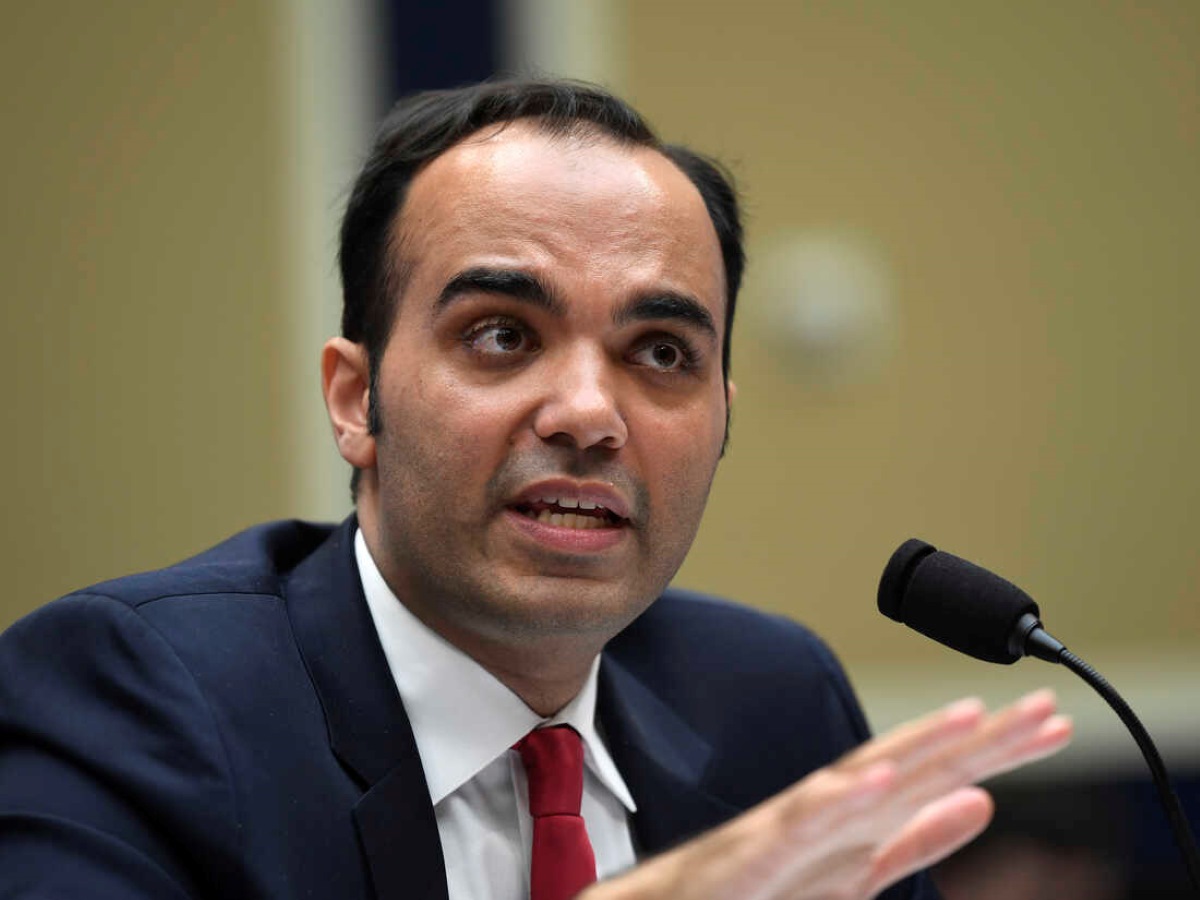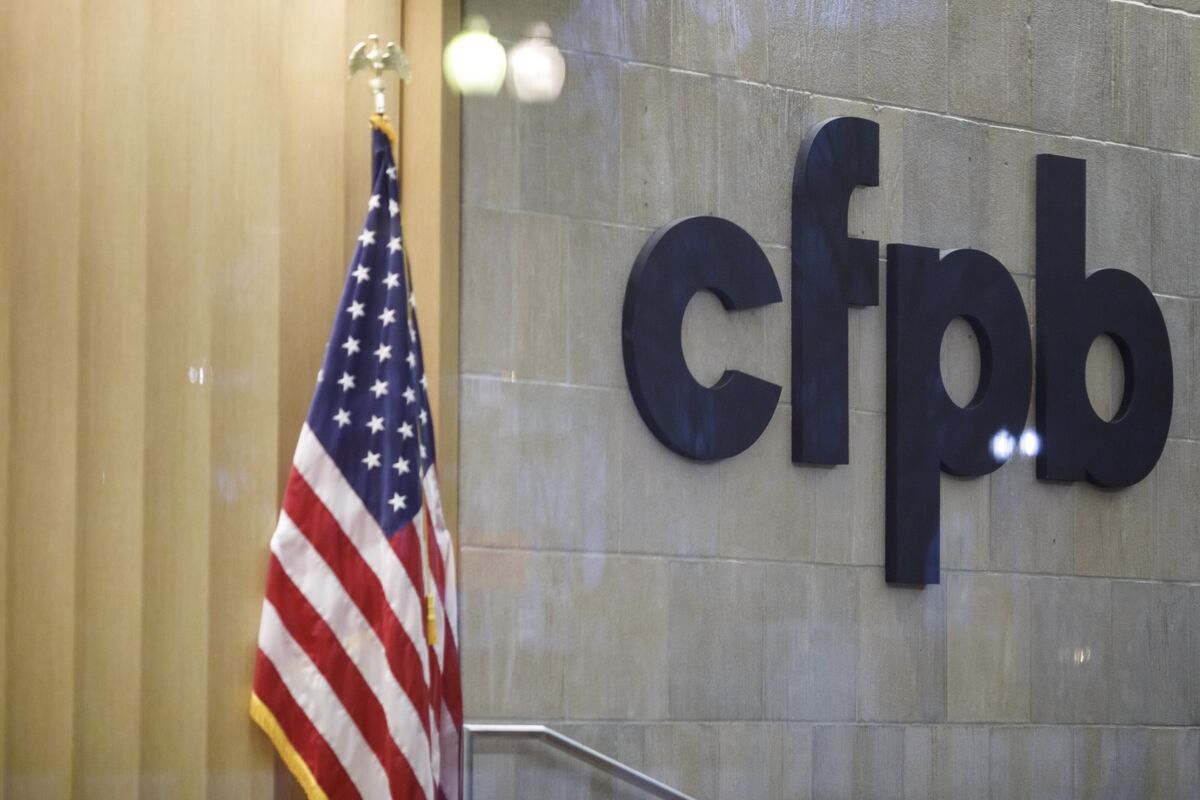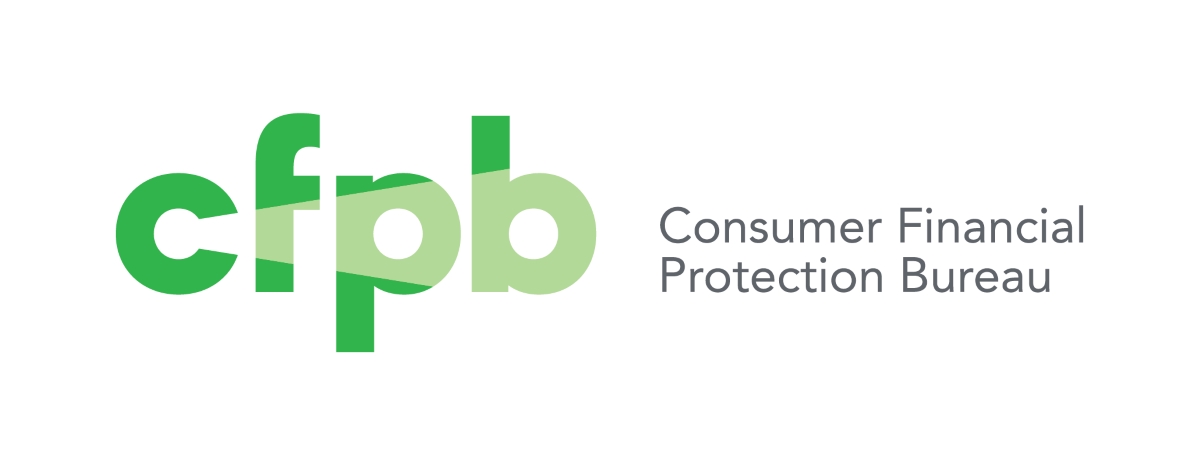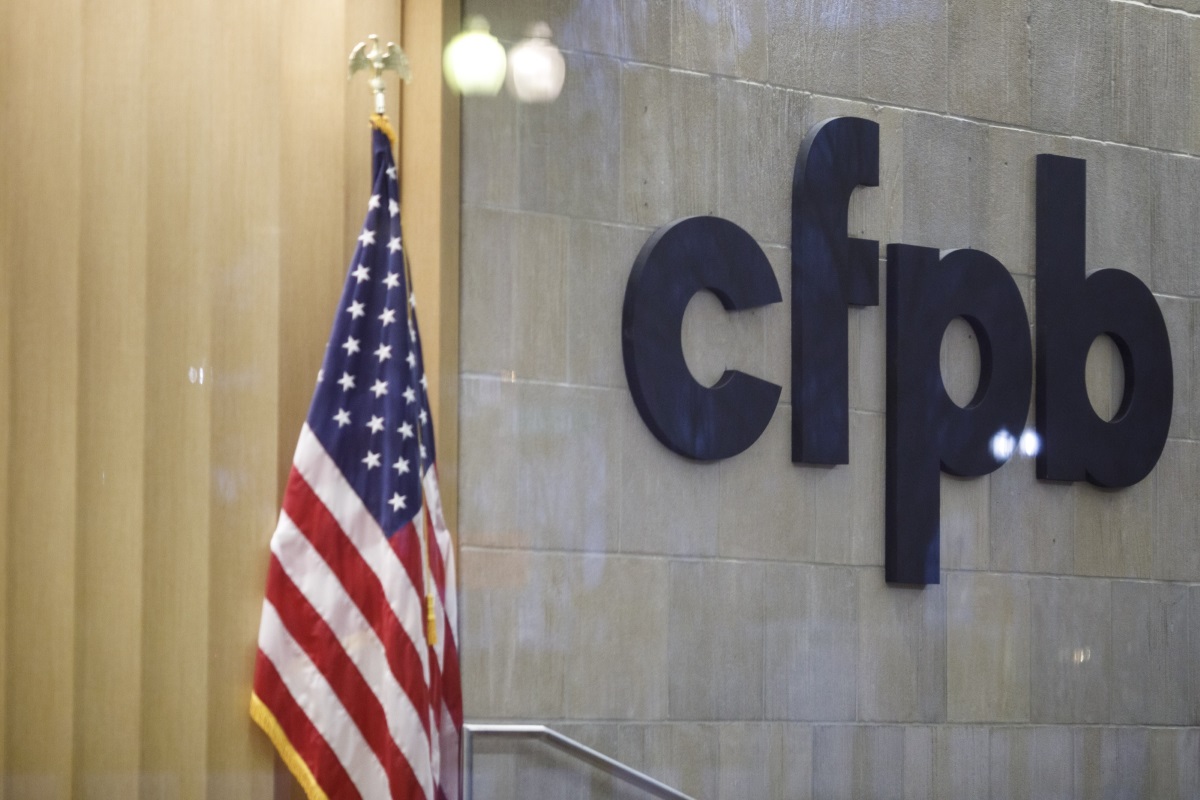Home>Finance>Who Represents The Consumer Financial Protection Bureau?
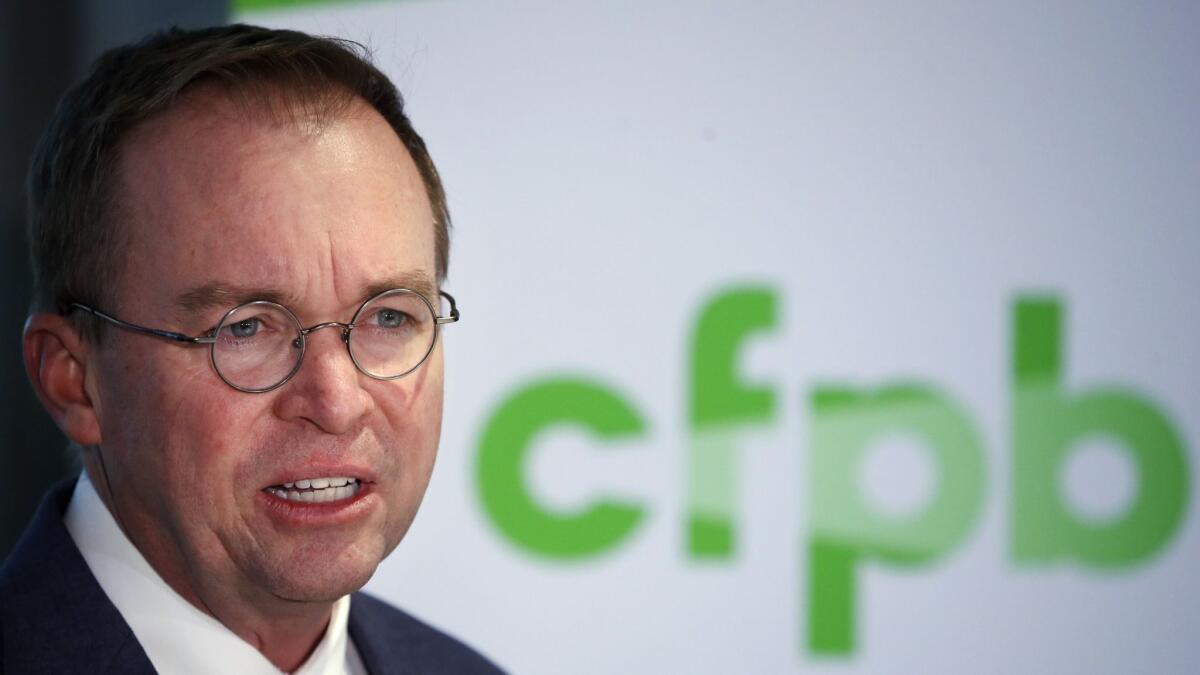

Finance
Who Represents The Consumer Financial Protection Bureau?
Modified: March 1, 2024
Discover who represents the Consumer Financial Protection Bureau and ensures finance regulations are upheld. Stay informed about the dedicated professionals working to protect consumers.
(Many of the links in this article redirect to a specific reviewed product. Your purchase of these products through affiliate links helps to generate commission for LiveWell, at no extra cost. Learn more)
Table of Contents
- Introduction
- Establishment of the Consumer Financial Protection Bureau
- The Role and Responsibilities of the Consumer Financial Protection Bureau
- The Consumer Financial Protection Bureau’s Leadership Structure
- The Director of the Consumer Financial Protection Bureau
- The Deputy Director of the Consumer Financial Protection Bureau
- The Consumer Financial Protection Bureau’s Advisory Boards
- Conclusion
Introduction
The Consumer Financial Protection Bureau (CFPB) is an independent agency of the United States government that was established in 2010 under the Dodd-Frank Wall Street Reform and Consumer Protection Act. Its primary goal is to promote fairness and transparency in the consumer finance market. The CFPB is responsible for enforcing federal consumer financial laws and providing consumers with the necessary information and tools to make informed financial decisions.
With a mission to protect consumers from deceptive practices and unfair treatment by financial institutions, the CFPB plays a crucial role in regulating various sectors of the finance industry, including banks, credit unions, mortgage lenders, payday lenders, and debt collection agencies. By establishing and enforcing rules and regulations, conducting investigations, and taking legal action where necessary, the CFPB aims to create a level playing field for consumers and foster a fair and robust financial marketplace.
Throughout its existence, the CFPB has been a champion of consumer rights, working diligently to address financial discrimination, combat predatory lending practices, and ensure that consumers are treated fairly in their interactions with financial institutions. The agency has actively conducted research, implemented educational initiatives, and developed tools and resources to empower consumers and help them navigate the complex financial landscape.
In this article, we will explore the establishment of the Consumer Financial Protection Bureau, delve into its role and responsibilities, and shed light on the leadership structure of the agency. We will also examine the key figures that represent the CFPB, including the Director and Deputy Director, as well as the important role played by advisory boards in providing valuable insights and guidance to the Bureau.
Overall, understanding the Consumer Financial Protection Bureau and its significance in safeguarding consumer interests is essential for consumers, financial institutions, and the broader economy. By ensuring fair and transparent practices in the consumer finance market, the CFPB plays a vital role in creating a more responsible and sustainable financial system for all.
Establishment of the Consumer Financial Protection Bureau
The Consumer Financial Protection Bureau (CFPB) was established in response to the financial crisis of 2008, which exposed numerous predatory lending practices and fraudulent schemes that had a devastating impact on consumers. The Dodd-Frank Wall Street Reform and Consumer Protection Act, signed into law in July 2010, created the CFPB as an independent agency, providing it with the authority to regulate and enforce federal consumer financial protection laws.
Prior to the creation of the CFPB, consumer financial protection was spread across multiple agencies, leading to fragmented oversight and limited enforcement capabilities. The establishment of the CFPB aimed to address this issue by consolidating regulatory authority under one agency to streamline consumer financial protection efforts and promote stronger enforcement measures.
The CFPB operates under the belief that consumers deserve to have the information and tools necessary to make well-informed financial decisions. By promoting transparency, fairness, and accountability in the consumer finance market, the CFPB seeks to protect consumers from unfair and deceptive practices.
Furthermore, the CFPB is dedicated to providing consumers with resources and education to enhance their financial literacy. The agency strives to empower individuals and communities to make informed choices about borrowing, saving, and investing. Through its initiatives, such as the Know Before You Owe campaign, the CFPB works to ensure that consumers understand the risks and benefits associated with different financial products and services.
The establishment of the CFPB also granted the agency significant authority to enforce consumer financial protection laws. It has the power to investigate financial institutions, issue subpoenas for documents and information, conduct hearings, and take legal action against entities engaged in unlawful practices. This enforcement authority allows the CFPB to hold violators accountable and seek restitution for consumers who have been harmed.
To support its mission, the CFPB is funded by the Federal Reserve System. This independent funding structure ensures that the agency can operate objectively and without undue influence from external parties. It also gives the CFPB the ability to allocate resources as needed to effectively carry out its responsibilities.
Overall, the establishment of the Consumer Financial Protection Bureau marked a significant step toward bolstering consumer protections and ensuring a fair and transparent financial marketplace. By consolidating regulatory authority, promoting financial literacy, and enforcing consumer financial protection laws, the CFPB plays a crucial role in safeguarding the rights and interests of consumers in the United States.
The Role and Responsibilities of the Consumer Financial Protection Bureau
The Consumer Financial Protection Bureau (CFPB) has a broad range of responsibilities aimed at protecting consumers in the financial marketplace. The agency’s primary role is to enforce federal consumer financial laws and ensure that consumers are treated fairly by financial institutions.
One of the key responsibilities of the CFPB is rulemaking. The agency has the authority to develop and implement rules and regulations that govern various aspects of the consumer finance market. These rules cover areas such as mortgage lending, credit cards, payday loans, debt collection, and more. By establishing clear guidelines and standards, the CFPB aims to prevent abusive practices and promote transparency in financial transactions.
In addition to rulemaking, the CFPB is responsible for supervising financial institutions to ensure compliance with consumer financial protection laws. This includes conducting examinations and assessments to evaluate the practices, policies, and procedures of banks, credit unions, and other entities within its jurisdiction. Through its supervision efforts, the CFPB identifies potential violations and takes appropriate enforcement actions to protect consumers.
The CFPB also plays a crucial role in educating and empowering consumers. The agency provides resources, guides, and tools to help individuals make informed financial decisions. This includes online resources, consumer guides, and educational campaigns aimed at promoting financial literacy and increasing consumer awareness of their rights. By empowering consumers with knowledge, the CFPB aims to level the playing field and prevent financial exploitation.
Furthermore, the CFPB handles consumer complaints regarding a wide range of financial products and services. Consumers can submit complaints directly to the agency, and the CFPB works to resolve these complaints in a fair and timely manner. This helps identify patterns of misconduct and provides valuable insights into industry practices, allowing the CFPB to take appropriate actions to address consumer concerns.
Another critical responsibility of the CFPB is enforcement. The agency has the authority to take legal action against financial institutions that engage in unfair, deceptive, or abusive practices. This includes conducting investigations, issuing subpoenas, and pursuing civil enforcement actions. Through its enforcement efforts, the CFPB aims to hold accountable those who harm consumers and seek remedies for affected individuals.
Overall, the role and responsibilities of the Consumer Financial Protection Bureau are focused on ensuring fairness, transparency, and accountability in the consumer finance market. By enforcing laws, supervising financial institutions, educating consumers, addressing complaints, and taking enforcement actions, the CFPB works diligently to protect consumers and promote a more equitable financial marketplace.
The Consumer Financial Protection Bureau’s Leadership Structure
The leadership structure of the Consumer Financial Protection Bureau (CFPB) is designed to provide direction and oversight to the agency, ensuring effective implementation of its mission and responsibilities. The structure includes the Director, Deputy Director, and various advisory boards.
The Director of the CFPB is a key figure who is appointed by the President of the United States and confirmed by the Senate. The Director is responsible for overseeing the operations of the agency, setting strategic priorities, and making significant policy decisions. This position holds significant influence and plays a critical role in shaping the direction of the CFPB. The Director is accountable for ensuring that the agency operates in accordance with its mission and within the bounds of established laws and regulations.
The Deputy Director of the CFPB is appointed by the Director and serves as the second-in-command of the agency. The Deputy Director provides support to the Director and assists in the overall management and administration of the CFPB. In the absence of the Director, the Deputy Director may assume the responsibilities of the position. The Deputy Director also plays a crucial role in coordinating the activities of different departments within the agency and collaborating with external stakeholders.
In addition to the Director and Deputy Director, the CFPB also benefits from the expertise and guidance provided by advisory boards. The agency has several advisory boards that serve as a platform for external stakeholders to provide input and recommendations on consumer financial issues. These advisory boards include the Consumer Advisory Board, the Community Bank Advisory Council, and the Credit Union Advisory Council. The members of these advisory boards represent diverse perspectives from consumer groups, financial institutions, and industry experts. Their collective insights help inform the decision-making process of the CFPB and ensure that consumer interests are taken into account in regulatory and enforcement efforts.
Through its leadership structure, the CFPB strives to maintain transparency, accountability, and expertise in its operations and decision-making processes. The Director, Deputy Director, and advisory boards work collaboratively to ensure that the agency fulfills its mandate of protecting consumers and promoting fairness in the consumer finance market.
It is important to note that the leadership structure of the CFPB may evolve over time as administrations change and new appointments are made. However, the fundamental concept of having strong leadership and advisory mechanisms remains integral to the functioning of the agency and its commitment to consumer protection.
The Director of the Consumer Financial Protection Bureau
The Director of the Consumer Financial Protection Bureau (CFPB) is a pivotal role within the agency, serving as the chief executive officer responsible for overseeing and guiding its operations. The Director is a presidential appointee, nominated by the President of the United States and confirmed by the Senate.
As the Director, this individual is responsible for setting the strategic direction of the CFPB and making policy decisions that align with its mission. They play a crucial role in ensuring that the agency fulfills its mandate of protecting consumers and promoting fairness in the consumer finance market.
The Director of the CFPB is entrusted with significant authority and influence. They have the power to enforce consumer financial protection laws, issue regulations, and bring lawsuits against financial institutions engaged in unfair, deceptive, or abusive practices. This enforcement authority allows the Director to hold accountable those who harm consumers and recover monetary relief on behalf of affected individuals.
In addition to enforcement, the Director also plays a key role in prioritizing the agency’s activities and resource allocation. They must weigh competing demands and challenges to determine where the CFPB’s efforts are best directed. This may involve focusing on areas with the greatest consumer impact, addressing emerging issues and trends, or responding to consumer complaints and concerns.
Furthermore, the Director of the CFPB serves as the public face of the agency, representing it in interactions with stakeholders, including Congress, other government agencies, consumer advocacy groups, and the financial industry. They must effectively communicate the CFPB’s mission, initiatives, and achievements to build trust and support for the agency’s work.
Given the importance of the Director’s role, it is critical that the individual occupying this position possesses a strong background in consumer financial protection and a deep understanding of the complexities of the financial industry. They should have expertise in policy development, enforcement, and regulatory oversight to effectively navigate the challenges and nuances of the consumer finance market.
It is worth noting that the Director of the CFPB operates in a politically charged environment, as changes in administrations can lead to shifts in agendas and priorities. As such, the Director must be able to navigate these changes while keeping the agency focused on its core mission of protecting consumers.
Ultimately, the Director of the Consumer Financial Protection Bureau plays a critical role in shaping the direction and impact of the agency. With their leadership and expertise, they guide the CFPB’s efforts in promoting fairness, transparency, and accountability in the consumer finance market and ensuring that consumers are treated fairly by financial institutions.
The Deputy Director of the Consumer Financial Protection Bureau
The Deputy Director of the Consumer Financial Protection Bureau (CFPB) is a key leadership position within the agency, serving as the second-in-command and supporting the overall management and administration of the CFPB. The Deputy Director is appointed by the Director of the CFPB and plays a critical role in assisting with the agency’s operations and strategic decision-making.
The Deputy Director’s responsibilities encompass a wide range of areas. They collaborate closely with the Director to establish and implement the CFPB’s goals and objectives, ensuring that they align with the agency’s mission of protecting consumers in the financial marketplace. In the absence of the Director, the Deputy Director may assume the responsibilities of the position, ensuring continuity in leadership and decision-making.
One of the primary functions of the Deputy Director is to coordinate the activities of various departments within the CFPB. They work closely with senior management to oversee the day-to-day operations of the agency and ensure effective communication and collaboration across departments. This coordination is crucial for the smooth functioning of the CFPB and the efficient execution of its initiatives and responsibilities.
Additionally, the Deputy Director serves as a liaison between the CFPB and external stakeholders, including other governmental agencies, financial institutions, consumer advocacy groups, and the public. They represent the agency in meetings, hearings, and conferences, advocating for the CFPB’s mission and promoting cooperation and collaboration with various stakeholders. This role requires strong communication and relationship-building skills to foster partnerships and gather insights from diverse perspectives.
The Deputy Director also plays an instrumental role in strategic planning and policy development. They contribute to the formulation of the agency’s strategic priorities and assist in the development and implementation of regulations and initiatives aimed at protecting consumers in the financial marketplace. Their expertise and knowledge of consumer financial protection issues are essential in guiding the CFPB’s efforts to address emerging challenges and promote fairness and transparency.
Furthermore, the Deputy Director assists in managing the agency’s resources and budget. They work closely with the Director to allocate resources effectively, ensuring that the CFPB has the necessary funding and personnel to carry out its mission. This includes making decisions on resource allocation, staffing, and strategic investments that support the agency’s goals and objectives.
In summary, the Deputy Director of the Consumer Financial Protection Bureau plays a crucial role in supporting the leadership and management of the agency. They collaborate with the Director, coordinate activities across departments, represent the CFPB to external stakeholders, contribute to policy development, and assist in resource management. With their expertise and guidance, the Deputy Director helps ensure that the CFPB fulfills its mission of protecting consumers in the financial marketplace.
The Consumer Financial Protection Bureau’s Advisory Boards
The Consumer Financial Protection Bureau (CFPB) maintains several advisory boards that play an essential role in providing valuable insights and guidance to the agency. These advisory boards represent diverse perspectives from consumer advocacy groups, financial institutions, industry experts, and other stakeholders. Through their expertise and input, they contribute to the development of policies and initiatives that promote consumer financial protection.
One of the prominent advisory boards within the CFPB is the Consumer Advisory Board (CAB). Composed of consumer advocates, academics, and community leaders, the CAB offers expertise and perspectives on consumer financial issues. Members of the CAB provide valuable input on consumer experiences, industry practices, and emerging trends. They help ensure that the CFPB’s policies and activities align with the needs and interests of consumers.
The Community Bank Advisory Council (CBAC) is another key advisory board that focuses on the interests and challenges faced by community banks. This council provides insights on the impact of CFPB regulations and initiatives on community banks and their customers. By understanding the unique needs and perspectives of community banks, the CFPB can tailor its policies to promote responsible lending and support the vital role played by these institutions in local communities.
The Credit Union Advisory Council (CUAC) serves a similar purpose as the CBAC but specifically focuses on credit unions. The CUAC advises the CFPB on issues affecting the credit union industry and the consumers they serve. By engaging with representatives from credit unions, the CFPB can gain a deeper understanding of the challenges and opportunities in this sector and tailor its policies to address their specific needs.
These advisory boards provide opportunities for the CFPB to engage in constructive dialogue with industry experts and consumer advocates. By bringing together diverse perspectives, the agency can gather insights, identify emerging trends, and make informed decisions on policymaking and enforcement actions. The advisory boards also serve as a conduit for the CFPB to disseminate information and seek feedback on its initiatives, ensuring transparency and accountability.
Members of the CFPB advisory boards are selected through a nomination and selection process. The agency seeks individuals with subject matter expertise, practical experience, and a commitment to consumer financial protection. The members typically serve staggered terms to ensure continuity and the inclusion of new voices and perspectives.
Advisory board meetings provide a forum for open discussions, where members can raise concerns, offer suggestions, and provide feedback on the CFPB’s initiatives and policies. These meetings are often open to the public, allowing stakeholders and interested parties to observe the deliberations and contribute to the dialogue.
Overall, the Consumer Financial Protection Bureau’s advisory boards are essential components of the agency’s decision-making process. By engaging with external stakeholders and incorporating their insights, the CFPB ensures that its policies and actions reflect a comprehensive understanding of the consumer finance market and the needs of consumers.
Conclusion
The Consumer Financial Protection Bureau (CFPB) holds a vital role in safeguarding the rights and interests of consumers in the financial marketplace. Established in response to the financial crisis of 2008, the CFPB has made significant contributions to promoting fairness, transparency, and accountability in consumer finance.
Through its enforcement authority, the CFPB has taken actions against financial institutions engaged in unfair, deceptive, or abusive practices, seeking justice and restitution for affected consumers. The agency’s rulemaking efforts have resulted in the development and implementation of regulations that prevent predatory practices and promote consumer protection.
The leadership structure of the CFPB, with its Director and Deputy Director, provides the necessary guidance and oversight to ensure effective implementation of the agency’s mission. The Director plays a pivotal role in setting the strategic direction, while the Deputy Director supports the overall management and coordination of the CFPB’s activities.
The CFPB engages with various advisory boards, such as the Consumer Advisory Board, Community Bank Advisory Council, and Credit Union Advisory Council, to gather insights and perspectives from diverse stakeholders. These advisory boards contribute to the formulation of policies and initiatives that uphold consumer interests and promote responsible lending practices.
Overall, the work of the CFPB is crucial in creating a fair and transparent consumer finance market. By enforcing laws, supervising financial institutions, educating consumers, addressing complaints, and collaborating with stakeholders, the CFPB strives to ensure that consumers are treated fairly and have the necessary tools and information to make informed financial decisions.
Looking ahead, the CFPB will continue to adapt and evolve to address emerging challenges in consumer financial protection. It will remain committed to enhancing financial literacy, combating abusive practices, and promoting the well-being of consumers in an ever-changing financial landscape.
Ultimately, a strong and effective Consumer Financial Protection Bureau benefits not only consumers but also financial institutions and the broader economy. By fostering trust, accountability, and fairness, the CFPB contributes to the overall stability and integrity of the financial system, creating a level playing field where consumers can make sound financial choices and thrive.

